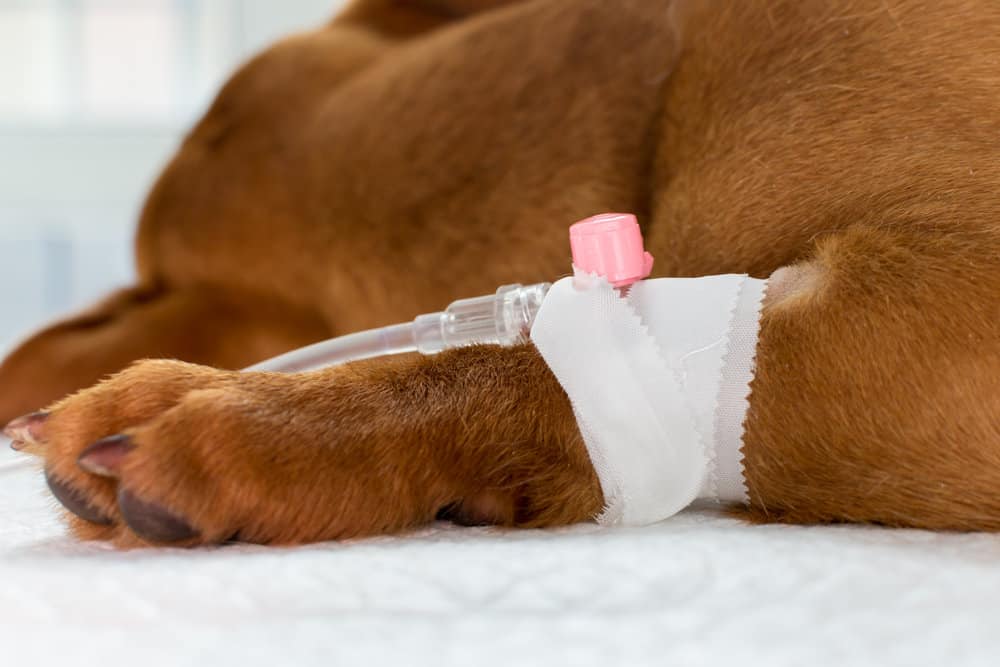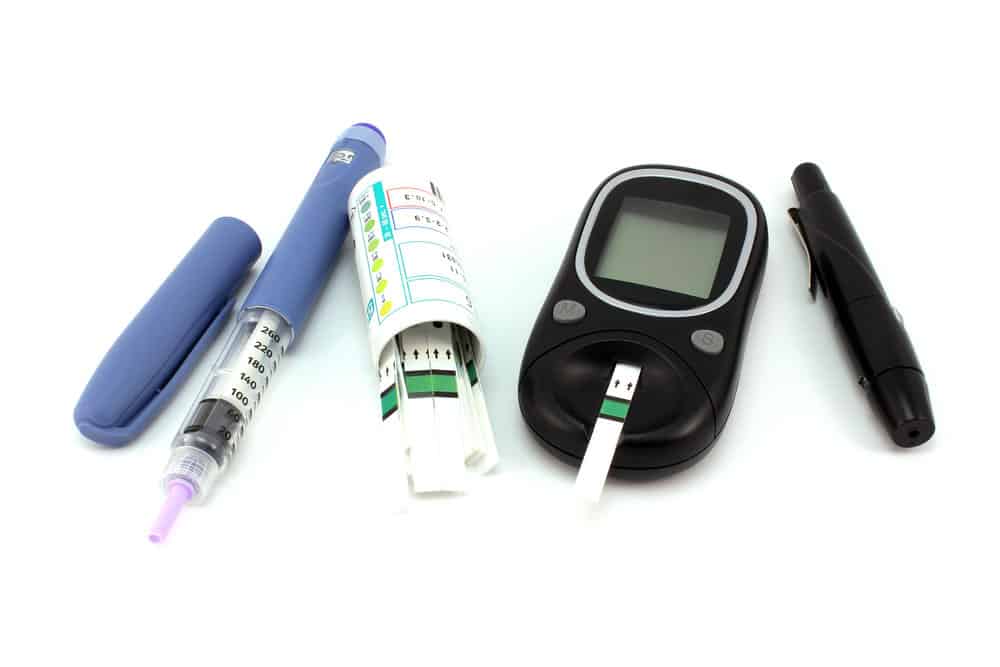Puppies are usually energetic with strong appetites, yet, they should get their share of rest every night. So if your puppy isn’t eating and is sleeping a lot, he could be suffering from depression, separation anxiety, an infection, or metabolic disease.
Infectious diseases like kennel cough, parvovirus, or heartworm can cause lethargy and loss of appetite. Sometimes, though, it’s an endocrine problem, like in the case of diabetes or Addison’s disease.
Monitoring your puppy for other signs and symptoms should let you know more about what he’s suffering from. That’s why you should be alert and get him the help he needs if it’s something serious.
Reasons for Lethargy and Loss of Appetite in Puppies
Listlessness and a poor appetite are not normal puppy behavior, and sometimes, that’s cause for concern.
Young puppies tend to sleep a lot in their early days because that’s when growth hormones are most active. However, when they’re awake, puppies are usually running around, being playful and active.
Puppies also spend a considerable amount of time eating. They usually eat 3–5 times a day, often finishing their bowls.
So if your puppy isn’t moving enough and is skipping meals, it can be one of the following reasons.
Depression

Depression can be a huge reason why your puppy oversleeps, withdraws, and doesn’t eat his fill. Just like humans, dogs have feelings that can get hurt and leave them blue for prolonged periods.
Unfortunately, this is common in adopted puppies, especially those who lived in a shelter all their life. Dogs that suffered a traumatic experience, like abuse, loss of a companion, or being shipped are also highly susceptible.
Depressed dogs can be treated with a combination of medications and an understanding owner. You just need to be patient, accept your dog’s state, and ask for help if necessary.
Helpful Dog Training Resource:
For help with training your dog, you should take a look at The Online Dog Trainer by Doggy Dan. Doggy Dan is an expert Dog Trainer based in New Zealand. His online resource contains Hundreds of Excellent Dog Training Videos that will take you step-by-step through the process of developing a healthy, happy well-behaved dog.
Separation Anxiety
If you had to go out of town, leaving your puppy behind, his caretakers might report too much sleeping and not enough eating. This is a symptom of separation anxiety, which has many other forms.
Some puppies might turn hyperactive, destructive, and disobedient, others may withdraw and look down and depressed.
Medication, behavioral training, and gradually weaning the puppy off your constant presence can be very beneficial in this case.
Infectious Diseases
Many infectious diseases affect puppies, and they can be bacterial, fungal, parasitic, or viral in origin.

Here are some of the most common ones that cause lethargy and food avoidance:
Kennel Cough (Tracheobronchitis)
This is a group of respiratory diseases that can cause the inflammation of the trachea and the bronchi in the lower respiratory system.
Kennel cough can be caused by adenovirus type-2, canine coronavirus, parainfluenza virus, and Bordetella bronchiseptica bacteria. It presents with a cough, wheezing, a runny nose and eyes, lack of appetite, and loss of energy.
You can usually tell if kennel cough is the reason for your puppy not eating and oversleeping due to respiratory symptoms. But sometimes, the case is mild and the puppy coughs sporadically.
Parvovirus
Canine parvovirus is a gastrointestinal viral infection, which means it attacks the gut. It’s transmitted between a sick and a healthy dog by contact with contaminated items, like sharing of food and water bowls.
Parvovirus usually targets puppies, but sometimes older dogs are affected too. It presents as lethargy, loss of appetite, and depression, followed by violent bouts of vomiting and diarrhea.
If a vet detects the virus early, there’s a high chance they can save the puppy through medication and supportive care. However, most people detect the virus once it’s too advanced, which makes it fatal in 90% of untreated cases.
Heartworm
A parasitic worm infection that starts with a mosquito bite, heartworm (scientific name Dirofilaria immitis) thrives inside the heart, blood vessels, and lungs of affected dogs.
Heartworm presents early on with few to no symptoms. As it progresses, the puppy may show fatigue, decreased appetite, and weight loss.
If left untreated, the heartworms can spread, mature, and multiply inside the arteries, heart, and lungs. This can lead to cardiovascular blockages that may cause arterial collapse (caval syndrome).
Metabolic (Endocrine) Diseases
Sometimes, the cause of excessive sleep and lack of appetite is a metabolic disease, like:
Diabetes

Diabetes is an endocrine (hormonal) metabolic disease. It’s uncommon in young puppies and most prevalent in older dogs, especially overweight and unspayed females.
The disease is diagnosed by chronically high blood sugar levels. Affected dogs will have trouble eating, drink copious amounts of water, and urinate frequently.
An advanced stage of untreated diabetes can cause diabetic ketoacidosis, which is a life-threatening condition. The blood contains high levels of ketone bodies that the body uses to get energy, which smell like acetone on the dog’s breath.
Puppies and dogs with diabetes will often need twice-daily insulin injections for the rest of their lives. But with frequent blood sugar monitoring, they should live normally like healthy dogs.
Addison’s Disease (Hypoadrenocorticism)
Addison’s disease is another hormonal disease. It affects the adrenal glands, which produce hormones necessary for metabolic functions.
The hallmark symptom of Addison’s disease is the inability to cope with stress since the hormones produced by the adrenal gland regulate that. The dog may have phases of reduced energy, loss of appetite, vomiting, and diarrhea.
Some breeds are at higher risk of developing Addison’s disease include:
- West Highland White Terriers
- Nova Scotia Duck Tolling Retrievers
- Soft Coated Wheaten Terriers
- Great Danes
- Portuguese Water Dogs
- Basset Hounds
- Standard Poodles
- Airedale Terriers
- Bearded Collies
Helpful Dog Health Resource:
Note: Our Health is #1 Priority. It should be no different for your dog. But you need to help him. The Ultimate Guide to Dog Health is the answer. This handy guide will help you recognize the symptoms of the health problems above. Get the knowledge to stay ahead of these terrible issues that can rob your lovely dog from vigor and life. Help your friend make it to 14 yrs+ without pain and suffering.
How to Handle Lethargy and Appetite Loss in Puppies
The first thing to rule out is a physical reason for your puppy’s condition. Most serious infectious diseases can be treated if you spot them early.
If your puppy is unvaccinated, take him to the vet for his vaccinations and a general checkup. The vet should rule out any organic reason for his state.
Once you’re sure the reason isn’t physical, you can work with a trainer or animal behaviorist to understand and deal with your puppy’s lethargy.
Treat training can be helpful in both boosting your puppy’s morale and whetting his appetite.

Paul has been creating content for the dog niche for many years. The information he shares comes his first hand experience growing up in dog lovers household and then owning multiple dog breeds of his own as an adult. Paul enjoys doing the hard research to collect, analyze and present our dogtemperament.com readers with the best answers to their questions.